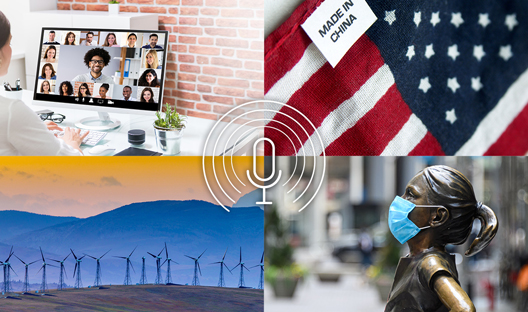Listen to the podcast
Climate activist Lord Mark-Malloch Brown shares his views alongside philanthropist investor David Rubeinstein and impact investing advocate Aunnie Patton-Power.
Listen to or watch the full individual webcasts
From the onset of the Coronavirus crisis, Investec Focus has been documenting this seminal moment in a series of discussions with experts in a broad range of disciplines, all of which you can watch or listen to in full:
Fani Titi – Raise SDG Ambition to Recover Stronger
David M. Rubenstein – a philanthropist shares his views
Mark Malloch-Brown – a climate conversation
Alain de Botton – the changing role of meaning and meritocracy at work
Marc Romberg and Chris Holdsworth – Investec Wealth & Investment 2020 Outlook
Aunnie Patton Power – impact investing: is it possible to do well by doing good?
Leila Fourie – Women in finance – Cometh the hour, cometh the woman
Subscribe to Investec Focus Radio SA wherever you get your podcasts

Listen to more episodes in this series
Enjoyed this podcast? There are three other episodes in our "Preparing for a post-pandemic future" series that you can download.
Get Focus insights straight to your inbox




